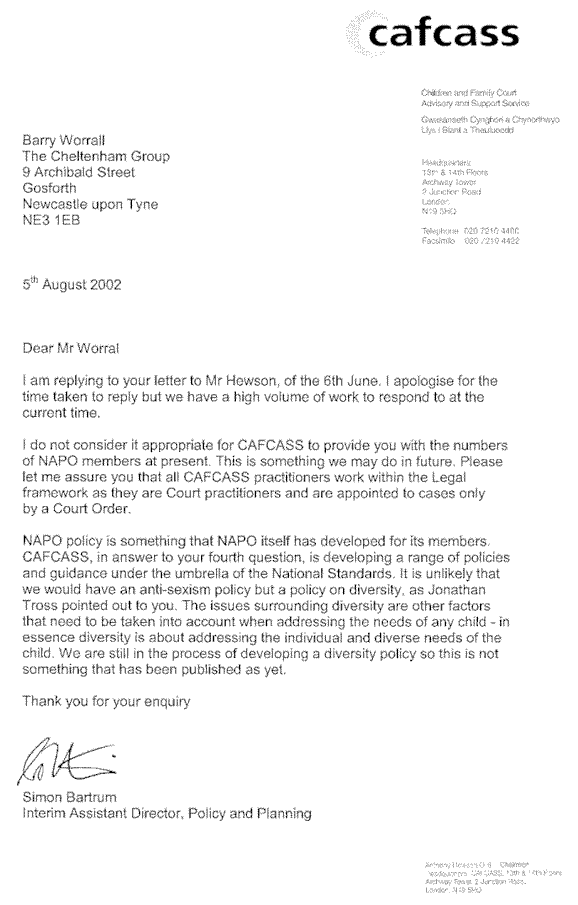
The Court Welfare Service was subsumed within CAFCASS in 2001, so that a central body had responsibility for what were CWOs, now CAFCASS officers.
At a public CAFCASS meeting in Manchester, 27 May 2002, CAFCASS's Chairman, Anthony Hewson was asked to explain the situation. He asked his colleague Jonathan Tross to respond with their position, which was that acceptance of the policy was part of their 'diversity' policy. Subsequently Chairman Anthony Hewson was approached in writing about how he would prevent the officers, for whom he had responsibility, from applying the NAPO 'Anti-sexism' policy, which would prevent them from subverting the law or perverting the course of justice in individual cases.The Cheltenham Group's letter was :
date : 3 June 2002
to : Anthony Hewson, Chairman CAFCASS Headquarters 13th & 14th Floors, Archway Tower 2 Junction Road London N19 5HQ
Dear Anthony, CAFCASS and the NAPO Anti-sexism Policy reference "Policy Objectives and Targets – 2 (a)-(f) The family court System" on page 11
It was interesting to attend the consultation exercise in Manchester on Monday 27 May, and to meet you.
For your convenience, I enclose an accurate facsimile of the NAPO Anti-Sexism Policy which has been produced by the Cheltenham Group, and refer you to :
As I indicated then, I’d like clarification on CAFCASS’s position with respect to the NAPO Anti-sexism Policy, and ask you to let me have a response to the following specific questions :
I look forward to hearing from you in due course.
Yours faithfully,
Barry Worrall Director, The Cheltenham Group
|
The initial letter from the CAFCASS took about 2 months to arrive, refusing to take action is :
|
|
This letter appears to answer none of the questions asked, which are of considerable public interest. The central issue of CAFCASS prohibiting the use of the policy by its officers (in questions 2 and 4) was not addressed.
Hence, no satisfactory response was obtained by 23 August 2002, when we offered the story to the press/media.
Return to TENC Annex 4 / NAPO Contents